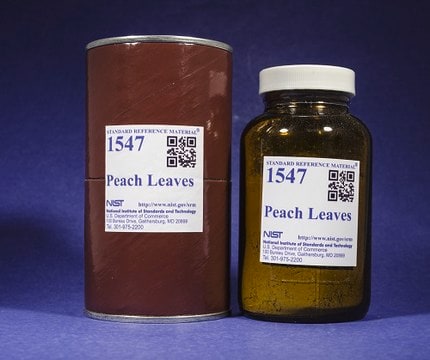GF43814527
Carbon - Vitreous
foil, 8mm disks, thickness 1.0mm, glassy carbon
Sinonimo/i:
Carbon - Vitreous, VC000503
Autenticatiper visualizzare i prezzi riservati alla tua organizzazione & contrattuali
About This Item
Prodotti consigliati
Forma fisica
foil
Produttore/marchio commerciale
Goodfellow 438-145-27
diam. × spessore
2 m × 1.0 mm
InChI
1S/C
OKTJSMMVPCPJKN-UHFFFAOYSA-N
Cerchi prodotti simili? Visita Guida al confronto tra prodotti
Descrizione generale
For updated SDS information please visit www.goodfellow.com.
Note legali
Product of Goodfellow
Codice della classe di stoccaggio
13 - Non Combustible Solids
Classe di pericolosità dell'acqua (WGK)
nwg
Punto d’infiammabilità (°F)
Not applicable
Punto d’infiammabilità (°C)
Not applicable
Certificati d'analisi (COA)
Cerca il Certificati d'analisi (COA) digitando il numero di lotto/batch corrispondente. I numeri di lotto o di batch sono stampati sull'etichetta dei prodotti dopo la parola ‘Lotto’ o ‘Batch’.
Possiedi già questo prodotto?
I documenti relativi ai prodotti acquistati recentemente sono disponibili nell’Archivio dei documenti.
Antoine P Pagé et al.
PloS one, 10(7), e0132062-e0132062 (2015-07-15)
The objectives of this study were to uncover Salix purpurea-microbe xenobiotic degradation systems that could be harnessed in rhizoremediation, and to identify microorganisms that are likely involved in these partnerships. To do so, we tested S. purpurea's ability to stimulate
Svenja T Lohner et al.
The ISME journal, 8(8), 1673-1681 (2014-05-23)
Direct, shuttle-free uptake of extracellular, cathode-derived electrons has been postulated as a novel mechanism of electron metabolism in some prokaryotes that may also be involved in syntrophic electron transport between two microorganisms. Experimental proof for direct uptake of cathodic electrons
Matthias Egger et al.
Environmental science & technology, 49(1), 277-283 (2014-11-21)
Methane is a powerful greenhouse gas and its biological conversion in marine sediments, largely controlled by anaerobic oxidation of methane (AOM), is a crucial part of the global carbon cycle. However, little is known about the role of iron oxides
Catharina Vendl et al.
The Journal of experimental biology, 218(Pt 21), 3425-3434 (2015-11-06)
Fundamental differences in methane (CH4) production between macropods (kangaroos) and ruminants have been suggested and linked to differences in the composition of the forestomach microbiome. Using six western grey kangaroos (Macropus fuliginosus) and four red kangaroos (Macropus rufus), we measured
A Romero-Perez et al.
Journal of animal science, 93(4), 1780-1791 (2015-05-29)
The objective was to evaluate whether long-term addition of 3-nitrooxypropanol (NOP) to a beef cattle diet results in a sustained reduction in enteric CH4 emissions in beef cattle. Eight ruminally cannulated heifers (637 ± 16.2 kg BW) were used in
Il team dei nostri ricercatori vanta grande esperienza in tutte le aree della ricerca quali Life Science, scienza dei materiali, sintesi chimica, cromatografia, discipline analitiche, ecc..
Contatta l'Assistenza Tecnica.








